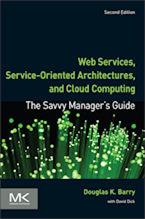Myth: ODBMSs Do Not Support Queries
You may have heard that "ODBMSs don't handle queries." I often hear this at conferences and from clients. I'm here to tell you that this just ain't so.
The facts are quite different. Most ODBMSs support queries, but they sometimes support queries in different ways. The table below provides information on the query capabilities of ODBMSs. Note that the market leading ODBMSs all support queries -- they all have since the early 1990s. This table is from the final release of the Object Storage Fact Book that was published in July, 2001. Some of the product names have changed since that date.
| Product | SQL-92 | ODBC | JDBC | OQL | Proprietary |
|---|---|---|---|---|---|
| db4o | |||||
| EyeDB | |||||
| FastObjects j2 | |||||
| FastObjects e7 | |||||
| FastObjects t7 | |||||
| GOODS | |||||
| Javlin | |||||
| JavlinOne | |||||
| MATISSE | |||||
| Objectivity/DB | |||||
| ObjectStore | |||||
| ObjectStore PSE/C++ | |||||
| ObjectStore PSE/Java | |||||
| Orient Enterprise Edition | |||||
| Orient Just Edition | |||||
| ozone | |||||
| TITANIUM | |||||
| Versant Developer Suite | |||||
| Versant enJin |
One possible reason for this myth is the widespread publicity that Dr. Michael Stonebraker's DBMS Matrix received over the years. See Stonebraker's DBMS Matrix.
More Detail on Myth: ODBMSs Do Not Support Queries
Context for Myth: ODBMSs Do Not Support Queries
Related Articles for Myth: ODBMSs Do Not Support Queries
Author
Douglas K Barry
Principal
You may use this material for your work or classes. Reprint Policy. Be sure to check the menu at the left for other articles available on this site.
The Savvy Manager's Guide
Douglas K Barry is also the author of a book that explains Web Services, service-oriented architecture, and Cloud Computing in an easy-to-understand, non-technical manner.
Web Services, Service-Oriented Architectures, and Cloud Computing: The Savvy Manager's Guide (Second Edition)
by Douglas K Barry with David Dick
This is a guide for the savvy manager who wants to capitalize on the wave of change that is occurring with Web Services, service-oriented architecture, and—more recently—Cloud Computing. The changes wrought by these technologies will require both a basic grasp of the technologies and an effective way to deal with how these changes will affect the people who build and use the systems in our organizations. This book covers both issues. Managers at all levels of all organizations must be aware of both the changes that we are now seeing and ways to deal with issues created by those changes.

